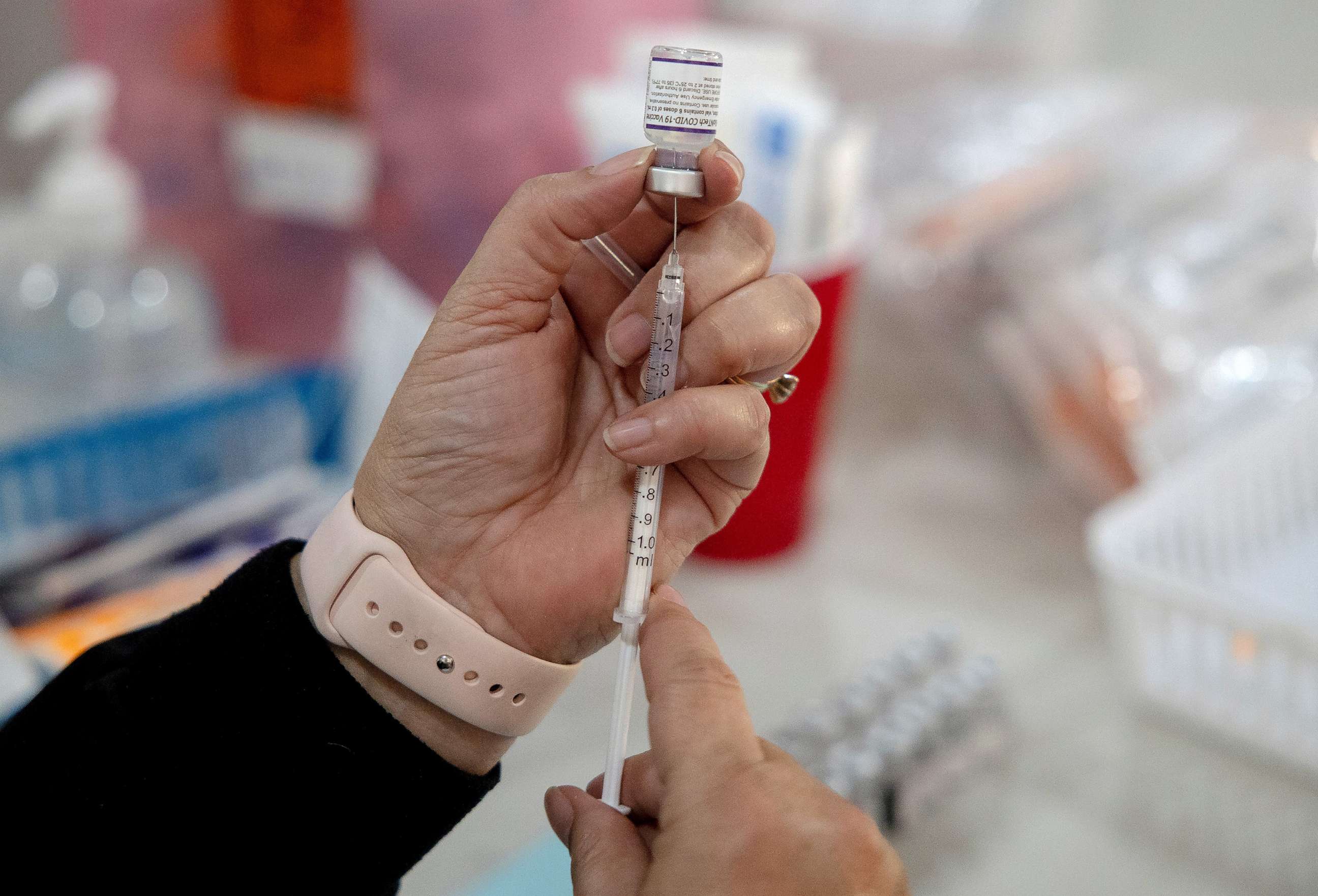Weekly COVID deaths hit new record low, CDC data shows
COVID deaths hit levels not seen since late March 2020,
COVID-19 deaths hit a new low this week, reaching levels not seen since late March 2020, when the pandemic was just beginning.
An estimated 1,160 Americans died from the virus this week, according to the Centers for Disease Control and Prevention.
The next lowest point was the week of March 18, 2020, with 169 deaths.
Over 1 million people have died from COVID-19 in the U.S. since the start of the pandemic.
"It's very unlikely that COVID deaths will go to zero, because we have a virus that is now here to stay and, in all likelihood, will constantly evolve to outpace our immunity," said Dr. John Brownstein, an ABC News contributor and chief innovation officer at Boston Children's Hospital.

Cases have also significantly declined, with less than 100,000 people testing positive this week. Experts have warned that case counts may be a gross underestimate due to the widespread availability of at-home tests.
The new XBB.1.16 omicron subvariant may be responsible for a recent surge of cases in India.
It now makes up nearly 10% of new cases in the U.S. but does not appear to be more severe than similar subvariants, experts say.
"We're still constantly concerned about some new variant, and this is why surveillance and public health action is so important, but at the individual level I think we can now rest assured that we're in an absolutely better place," Brownstein said.
More than 50 million Americans have received the most updated COVID bivalent vaccine, CDC data shows.
Uptake has been slowing down since the beginning of the year, with only 5 million people getting the shot in the past few months.
The FDA also recently announced a new simplified vaccination schedule for COVID vaccines.
Those over the age of 65 are now eligible for a second bivalent shot four months after their first. Immunocompromised patients can also receive another booster two months after their first and may be eligible for additional doses under the discretion of their provider.
"We don't know what a fall surge can bring but given the rapidly declining numbers of deaths and hospitalizations over time, even with new variants emerging, this is a really positive outlook for the future," Brownstein said.




